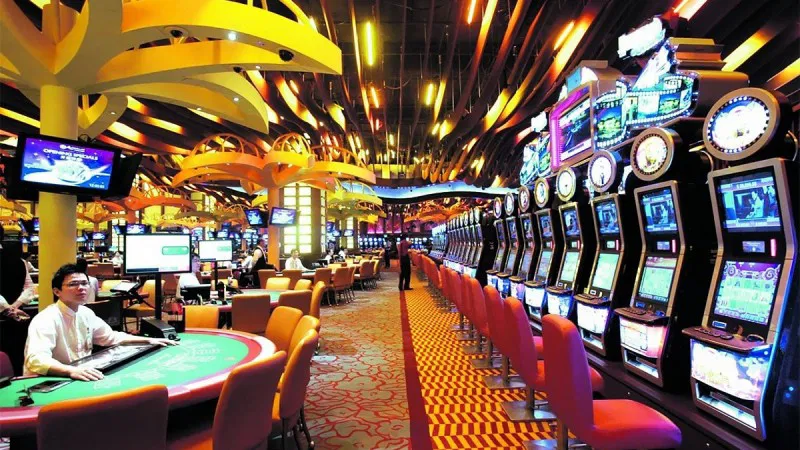
The casino industry has experienced massive transformation over the years, from exclusive gambling houses to globally accessible digital platforms we know and enjoy today. This transition was helped by various factors including advances in technology as well as changes in societal attitudes toward gambling.
Adaptive reuse of industrial buildings into casinos exemplifies this trend, merging historical architecture with cutting-edge entertainment. Such renovated spaces reflect an international shift toward sustainability and preservation of cultural heritage.
Origins
The Industrial Revolution marked an extraordinary period in history when change seemed to accelerate rapidly. Combining technological innovation with economic development, this revolutionary period had a profound effect on almost every aspect of daily life and transformed almost everything we experienced during its course.
Casino proponents frequently cite lower unemployment rates after opening of casinos as evidence that they aid the local economy. It is important to remember, however, that this change may have more to do with other factors than simply the introduction of casinos.
By the late 1700s, Britain had established itself as an empire with global reach and was an established trading power. Their wealth allowed them to acquire new manufacturing technologies from abroad as well as invest in railway construction – these railways enabled goods to be transported between towns and cities quickly thereby furthering industrialisation of Britain.
Evolution
Casino industry has come a long way since its early beginnings. Now accommodating to different player needs and made more accessible thanks to modern-day technology, casinos remain relevant even centuries later due to their need to test one’s luck and demonstrate human creativity.
Local communities sometimes rely on casino construction for economic development, yet it’s essential to compare changes in unemployment with state employment trends and consider whether workers employed at a casino are local residents – otherwise the casino could cause increased unemployment among its original population. It is also vitally important that other area attractions promote it alongside it to draw visitors; doing so will increase retail sales – one of casinos’ major sources of revenue.
Legalisation
The Industrial Revolution marked an unparalleled economic and social upheaval, changing society from mostly an agrarian basis into modern industry-led one. People gained more food, energy, travel farther distances, occupy better houses and experienced higher standards of living than ever before.
The revolution also improved transport systems with turnpike roads, canals and waterways, railroads and planes – which made transportation faster for raw materials as well as finished products more efficiently shipped out for sale or transport. Furthermore, improved communication channels helped people exchange ideas more freely than before.
Casino supporters frequently cite a decreased local unemployment rate as evidence that casinos contribute positively to the economy. To accurately evaluate this claim, this figure must be compared with changes in unemployment rates in surrounding areas to ascertain whether casinos truly help local economies.
Globalisation
Globalization brings many advantages, from reduced manufacturing costs and access to new markets to increasing competition and driving companies toward innovation.
Industrialisation 4.0 has revolutionised business. Through technological innovations, companies can communicate across borders and manage production from a centralised point, which means production can occur anywhere around the globe, cutting costs while meeting consumer demand more easily.
Casinos often employ skilled workers, which reduces unemployment in their respective areas. To what degree casinos reduce unemployment varies depending on the proportion of local visitors versus tourists. If most customers at a casino come from within driving distance, it will have an upbeat effect on retail sales (and therefore tax revenue); otherwise it could have negative repercussions.
Technology
Technology has revolutionized the casino industry in many ways. From online gambling platforms and virtual and augmented reality games to cashless gaming systems and data analytics, its influence can be felt across every facet.
AI-powered chatbots can offer instant customer support and quickly answer queries, while machine learning algorithms optimize the gaming content based on player behavior. These technologies help casinos enhance customer engagement and retention, detect suspicious activities quickly, ensure fair gaming environments.
Blockchains enable casinos to streamline back office operations by reducing fees and settlement times, helping increase revenues while improving customer acquisition efforts. It is important to remember that online gambling can become addictive and lead to financial trouble; so playing responsibly should always be practiced.





More Stories
The Art of Hedge Betting in Craps – Advanced Strategies for Managing Risk
The Role of Bonuses and Promotions in Casino Player Acquisition and Retention
Measuring the Competitiveness of Casino Destinations